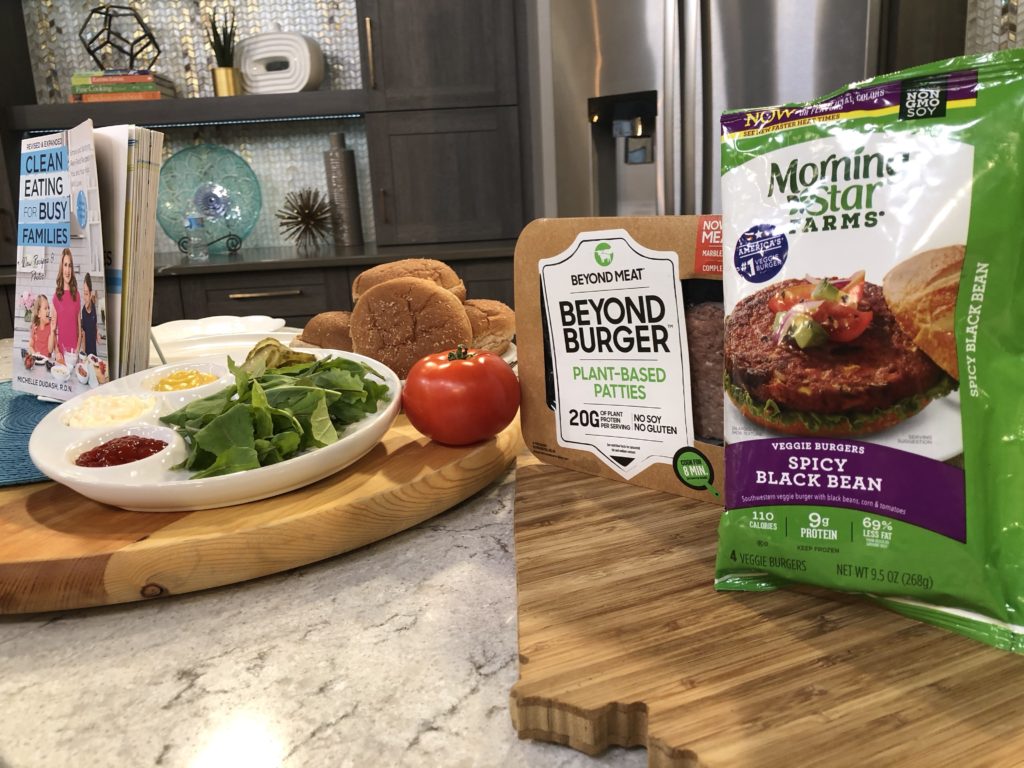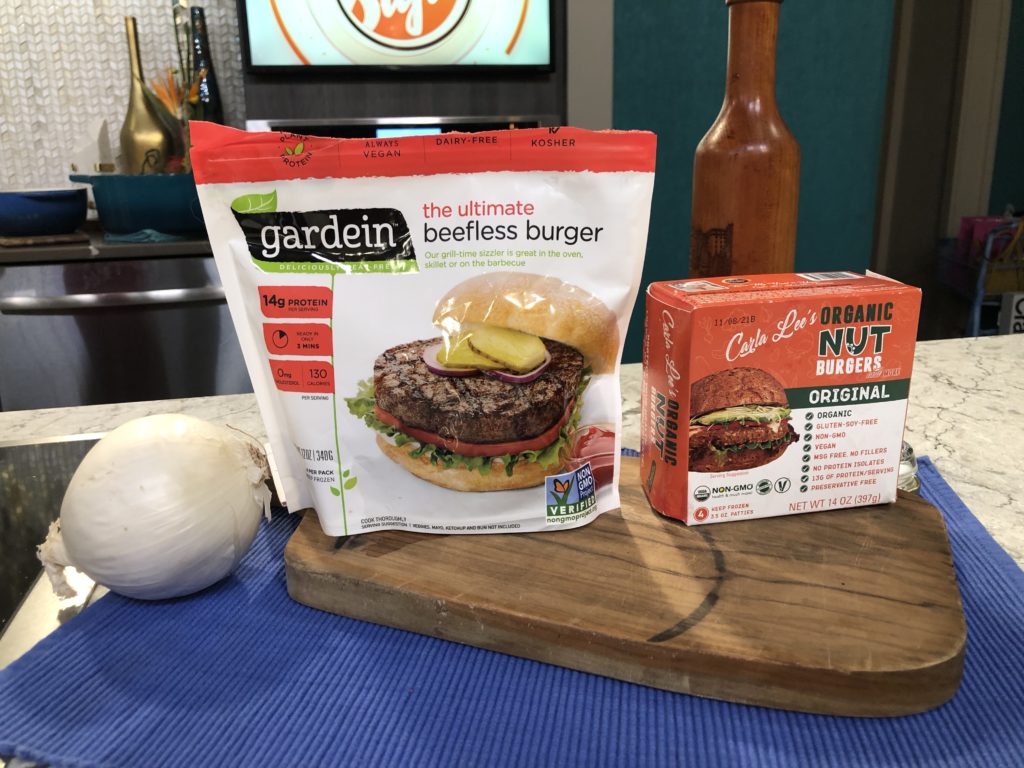Should you be eating veggie burgers or not?
Just about every restaurant offers veggie burgers these days, and these patties are taking up more and more shelf space in stores. Should you be eating veggie burgers or not? In this post, I’m sharing my best tips on how to decide what is right for you.
I appeared on Indy Style on WISH-TV recently to explain differences in plant-based burgers.
1. A recent survey from IFIC revealed that half of consumers have tried a meatless burger product. 45% believed the plant alternative was healthier than real meat when shown the Nutrition Facts Label. But is it really?
The popularity of plant-based burgers has skyrocketed in the past year, with a wide range of options available in stores and restaurants everywhere.
As a dietitian, I applaud people making an effort to eat more plants.
We know that Americans fall short in fruits, vegetables, fiber, and whole grains, according to government food surveys. And some veggie burgers can help you fill those gaps. But what about protein, taste, ingredients, price, and other nutrients? Not all veggie burgers are created equal.
2. Nutrition and ingredients vary greatly in veggie burgers, so read the label.
From 3 grams to 20 grams protein per veggie patty, it’s important to read the Nutrition Facts Panel if you are making a straight swap in your meal with just a patty. Look at calories and saturated fat, too.

Beyond Meat Beyond Burger (4 oz)
20 g protein per patty
250 calories, 2 g fiber
6 g saturated fat
Main protein sources: pea protein
Impossible Burger is a similar brand that you can currently only get in restaurants in Indiana, but it is rolling out in stores on the coasts for now. Main protein source: soy protein concentrate. Burger King’s Impossible Whopper contains 630 calories (a lot from the large bun), 4 g fiber, and 25 g protein.
Morningstar Farms Spicy Black Bean Burger (2.4 oz)
9 g protein per patty
110 calories, 4 g fiber
.5 g saturated fat
Main protein sources: black beans, brown rice, soy flour

Gardein Ultimate Beefless Burger (3 oz)
16 g protein per patty
130 calories, 2 g fiber
1 g saturated fat
Main protein sources: textured wheat protein, soy protein concentrate and isolate
Carla Lee’s Nut Burgers (3.5 oz)
9 g protein per patty
290 calories, 5 g fiber
2.5 g saturated fat
Main protein sources: brown rice, sunflower seeds, cashews
100% Ground Beef Patty, 95% Lean Beef (3.5 oz cooked)
23 g protein per patty
150 calories,0 g fiber
2 g saturated fat
Main protein source: beef
3. Michelle’s bottom line on veggie burgers:
There is still no conclusive evidence that veggie burgers are better for the environment compared to real-meat burgers, and farmers continue to make changes to reduce their carbon footprint.
Bottomline on veggie burgers:
Eat veggie burgers because you like the taste or the ingredients, but don’t think they are necessarily better for you. There isn’t really a need to give up your occasional real-meat burger in a reasonable-sized portion, as long as you’re still eating plenty of whole food plants in your diet. All of these patties can fit.
Here is my TV segment I was featured in about veggie burgers:
Michelle Dudash, RDN, is a registered dietitian nutritionist, Cordon Bleu-Certified chef, author of Clean Eating for Busy Families, and creator of Dash Dinners Meal Spice Kits.
source https://betterweightloss.info/veggie-burgers-better-for-you-or-not-dietitian-weighs-in/


No comments:
Post a Comment